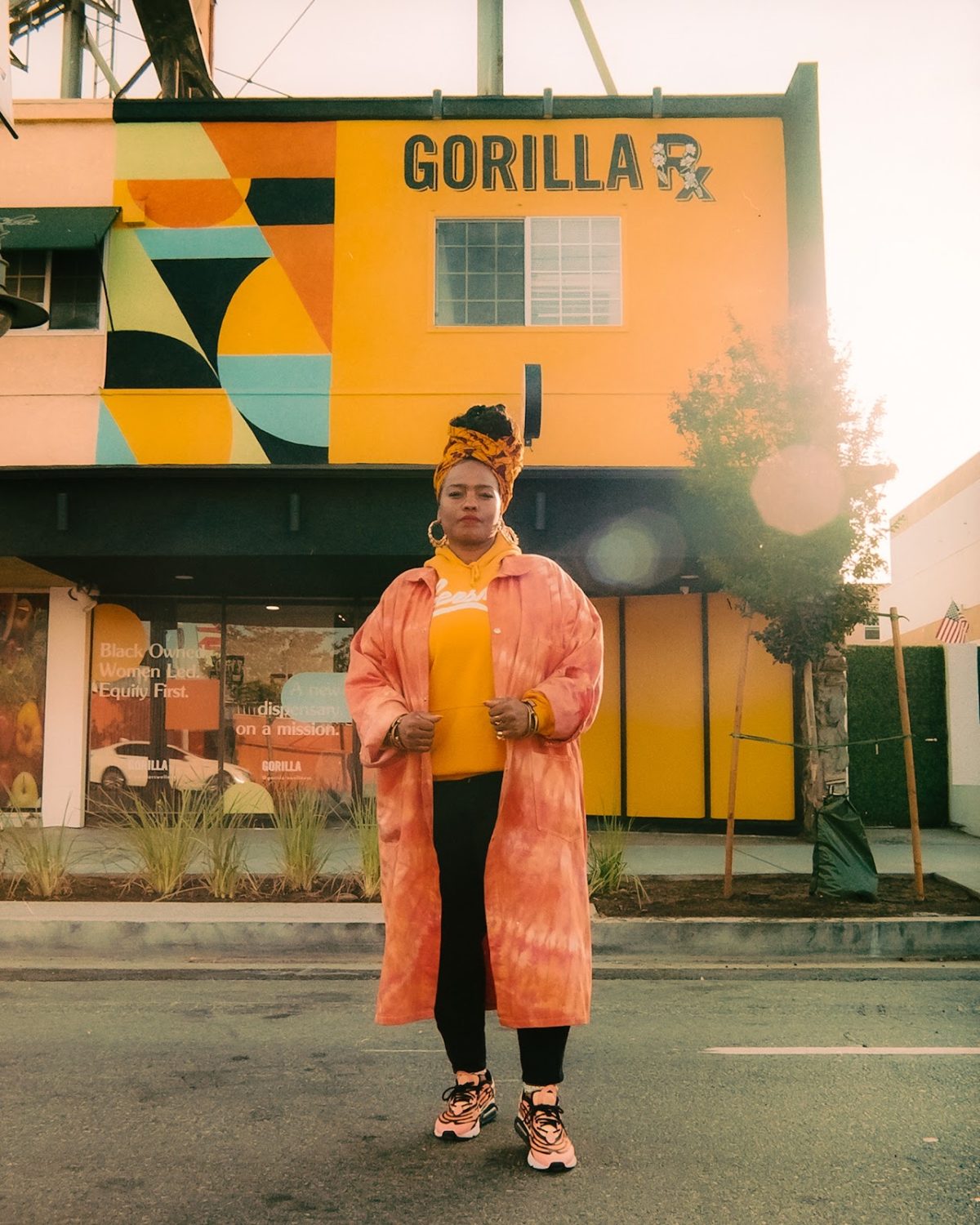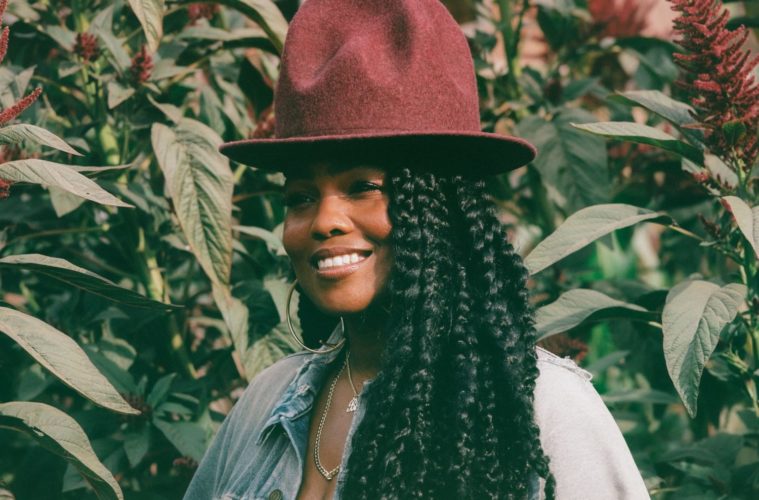The last year in Black cannabis in L.A. has been a weird one. Now this week, as we celebrate all Black-owned businesses in L.A. here at the Weekly, we’re taking a look at a sector that continues to face big hurdles but is thankful for the wins of 2021.
One of the biggest success stories so far to come out of the city’s struggling social equity program is Gorilla RX. The dispensary was founded by Kika Keith. Since the moment Gorilla RX crossed the finish line in becoming L.A.’s first official social equity dispensary, Keith has continued to be a champion for her peers who have put in a lot of time and money over the years to join her with their own success stories. Her work has even expanded to the national level with the Minority Cannabis Business Association, where she now serves on the board.
“Yeah, I’m always happy to say that I’m the first, and then I quickly take a breath and say but there’s too many of us that haven’t got across the finish line and that there still are not successful models to incubate, to train, to educate and to provide capital,” Keith told L.A. Weekly.

Keith noted additionally there is little oversight and monitoring of what’s happening to these applicants that are struggling. This includes everything from those that are in huge disputes with their investors, lost their properties, or have lost their inheritance.
“There has been nothing done to address this sort of civil rights issue that’s happening,” Keith said.
Of the 186 pre-ICO dispensaries, Keith noted six of them were owned by African Americans.
“I think three have closed their doors already,” Keith said. “And then out of 200 [Social Equity Applicants], you have five of us who have our doors open. There is a lot more work to be done here. We’re still yet to be prioritized.”
One key aspect of social equity anywhere is those companies participating in a program, be it L.A. or the east coast, get to market quickly before the pie is essentially chopped up between folks that aren’t from communities that were hit the hardest by the enforcement of cannabis laws. We asked Keith if it’s frustrating watching others continue to cut evergrowing pieces of the pie, as her fellow equity applicants sit in limbo.
“It’s Jim Crow all over again,” Keith replied. “And it was deliberate. You watched it happen in every single city and state where they rolled out social equity, and that’s why I know that it was deliberate. That’s why I know it was designed to fail.”
Keith spoke of numerous investors that she spoke to early that said their strategy was to wait it out. They knew that it would take so long that they could cut back and get these licenses down the road for pennies on the dollar. You only need to look to Keith’s inbox to see it now happening. Kieth said the would-be equity carpetbaggers source the emails through the lists of the approved applicants.
“All these different companies soliciting social equity applicants because they just get an email and solicit folks to take their licenses,” Keith said. “And I believe that it was very deliberate from the time that they could get $10 million, but there was no budget to fund social equity to the time that they had that $8 million, and it took them two and a half years to start the grant program.”
Keith went on to say we have to remember the intent of social equity was more than just the licenses. There were three pillars and that included a gainful living wage, employment for communities that were affected by the war on drugs, and the reinvestment of tax dollars.
“We’ve made close to half a billion dollars in taxes and you can’t tell me programs of South Central Los Angeles that have gotten tax dollars from this cannabis money,” Keith said. “For the ones that get their doors open like ourselves, our tax bill of $140,000 instead of being able to hire more people in my community, it has been a true miscarriage of justice.”
When asked if she was able to take pride at all in the fact there is more Black-owned cannabis in L.A. this year, Keith noted communities of color have historically gotten used to rejoicing in the small victories.
“And one thing we can’t lose, especially as Black people, is hope,” she said.
Keith believes one of the most effective things the city can do at this moment is provide real hands-on support. The two-hour online training so far hasn’t been an effective tool for creating success for applicants. But with the world opening back up hopefully, there is a chance for something better.
“Sitting in front of a computer reading books and just reading the policy is not an effective model for education for adult learning,” Keith said. “And so I would hope that now that there is an opportunity that you can’t use the excuse that you have to do it on Zoom.”
Keith wants them to rethink things and look at the population that this program was designed for, to create learning modules that are effective. She doesn’t believe that’s happening at the moment.
For her part, she’ll be opening a mock dispensary right next to her shop to begin training programs for those hoping to get a foot in the door in cannabis.
Advertising disclosure: We may receive compensation for some of the links in our stories. Thank you for supporting LA Weekly and our advertisers.

